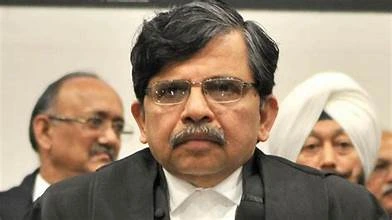Senior Advocate and former Chief Justice of Orissa High Court S Muralidhar has said that the Constitution reflected the aspirations of Indians, who wanted an egalitarian society that respected individual dignity.
Delivering a lecture on ‘Transformative Constitutionalism and the Role of the Judiciary,’ organised by the Kochi International Foundation and the National University of Advanced Legal Studies (NUALS), the Senior Advocate said that liberty, equality and fraternity were interconnected values. The whole structure would become weak if one of them was removed, he added.
Citing the Delhi High Court verdict decriminalising consensual sexual acts of adults under Section 377 of the IPC, the former Chief Justice of Orissa High Court said the one thing that appealed to judges was this concept of dignity of individuals.
He spoke about an incident in Bengaluru, wherein rumours led to panic among people from the North East. Justice Muralidhar said this showed the fragility of societal arrangements to protect fraternity.
The Constitution helped the individuals to unravel their identities, such as a Muslim girl from Bangalore wearing hijab or the members of backward classes or scheduled castes celebrating the festivals or marriages the same way as dominant classes. The Constitution worked for everyone, including the weak, the under privileged or those deprived of opportunities, he noted.
Justice Muralidhar encouraged the law students to turn to ith Constitution when faced with questions about how to live in a diverse society.
The Constitution was written with the blood and sweat of the livid experience of the framers of the Constitution. The only way to protect it was to practice it, otherwise it would die, he noted.
He told the students that whenever they had doubts on choices to make or had the inclination to go to a philosophical text or religious text, the natural instinct should be to go to the Constitution. The richness of India was that it was a variegated society with diversity and everyone should respect that.
Citing the incidents of caste discrimination, he said a judge of the Allahabad High Court purified his chamber because it was previously occupied by a Dalit person.
If the laws were being enforced seriously, people would not be practicing untouchability, even after 75 of framing of the Constitution.
A ruling party MLA purifying his house because the person who occupied it before him was a Dalit, needs to be publicly reprimanded for doing this. Dalit men were yet not allowed to ride a horse on their own wedding day, he noted.
Muralidhar, while addressing the criticism that the provisions of the Indian Constitution was taken from other countries, said the framers studied various constitutions and adapted what would work for India. He noted that the framers also added unique provisions. The Preamble began by giving the Indian cutizens this Constitution. Nobody gave Indians those rights. The citizens proclaimed those rights for themselves, he added.
As per the former High Court judge, while the Constitution recognised the rights people already had, it sought to ensure not just formal equality, but substantive equality.
Speaking about the transformative aspect of Articles 17 and 23 of the Constitution, the former judge said the socially transformative laws prohibited human trafficking and forced labour.
No Constitution had penal laws against any acts. However, the Indian Constitution criminalised social practices such as untouchability.
He further mentioned the 73rd and 74th amendments to the Constitution, stating that they decentralised power through panchayats and urban local bodies and gave reservations to persons of Scheduled Castes and women.
Terming them as seeds of transformation, Justice Muralidhar said that the transformation was happening at a slow pace, it was definitely happening.


